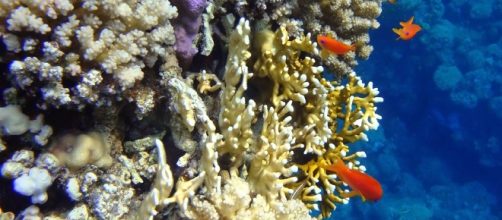With the rapid deterioration of Earth’s natural coral reef sanctuaries such as the Great Barrier Reef, scientists have decided that it's time to step in. Recently, a team of Australian scientists have found a feasible solution.
Coral reefs are terrible at reproduction
Corals are known for their poor rates of reproduction. Studies confirm that the success rate of coral breeding is significantly low. This is due to numerous factors present in the coral breeding grounds.
Corals reproduce by spawning eggs and sperm, which form cloud-like formations as they float in the water.
At this point, the cloud of eggs and sperm are completely at the mercy of waves and currents. Depending on the prevailing water flow, the sperm and eggs could float and drift away in all directions. The toughest eggs and sperm manage to unite to form larvae.
Unfortunately, not all larvae can make it to adulthood. According to News.Com, a significant number of larvae drift away from reefs and eventually die. Only a very small portion of coral larvae can actually settle on reefs and grow into an adult coral capable of breeding.
Scientists propose growing corals via IVF
The Southern Cross University research team headed by Professor Peter Harrison has successfully developed a way to breed corals using IVF.
According to ABC, the professor who has spent 35 years studying marine biology, believes that coral gardening is inefficient. The professor emphasized that spending tons of money in growing corals on small tiles and transferring them to the reef is a waste of resources.
Professor Harrison confirmed that theirs is the first project that has successfully re-established a healthy coral population. Harrison explained that previous attempts were erroneously focused on settling Coral Reefs onto artificial surfaces inside the laboratory.
Harrison and his team succeeded by mimicking the natural coral reproduction process to produce millions of coral larvae that were directly planted onto reef systems.
The team has proven that within a span of three years, the microscopic larvae can successfully grow into a colony that is capable of further reproduction.
Harrison believes that the positive results of the research will serve as the key to the restoration of coral reefs across the vast oceans of the planet. In fact, the professor has been awarded a $1.2 million dollar grant from the Australian Centre for International Agricultural Research (ACIAR) to restore blasted reefs in the Philippines. The professor hopes that his team’s method will eventually replace coral gardening and become the new norm in restoring damaged coral systems.


